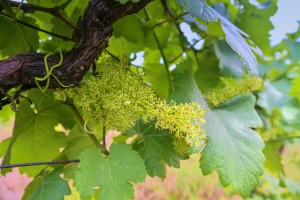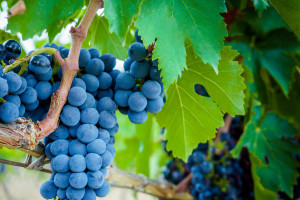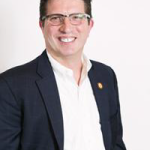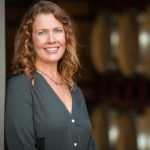Today we have a preview of a session to be presented during the 42nd Annual Conference of the Society of Wine Educators which will take place on August 15–17, 2018 in the Finger Lakes Region of New York State. Our guest authors are David Glancy and Allison Jordan, who are co-leading an upcoming session entitled Sustainable Winegrowing: Beyond Bugs and Cow Horns.
Red, White, and…Green?
We know Sustainable, Organic and Biodynamic winegrowing approaches can benefit the environment and communities. But what do these terms mean? How do we explain it to a consumer? And how do these approaches impact wine quality?
While there is some overlap between the three categories— soil and pest management, for example—sustainable winegrowing is the most comprehensive approach. Sustainability addresses more than 200 best practices for environmental stewardship, energy and water efficiency, healthy soils, wildlife habitat conservation, responsible pest management, good relationships with employees and neighbors, vibrant communities and more. A variety of educational and certification programs have hastened the adoption of sustainable practices by growers and vintners in California and around the world.
With increasing consumer interest in how food and beverages are grown and produced, a growing number of retailers and restaurants are choosing wines based, in part, on wineries’ environmental and social practices. The wine industry is already well positioned to respond to this global trend and in marketplace attention to supply chain transparency. Growers and vintners are also using sustainable practices and certification programs to distinguish themselves in a rapidly changing and competitive marketplace. Currently, 73% of winecase production in California (208 million cases) is produced in a Certified California Sustainable Winegrowing (CERTIFIED SUSTAINABLE) winery; and nearly one-quarter of the state’s winegrape acreage is CERTIFIED SUSTAINABLE, with another 10%+ vineyard acreage certified to other certification programs.
To the consumer, and even to wine professionals, this well-intentioned response can be slightly confusing. What is required for each program? What do the various logos mean? What are the differences and similarities between Biodynamic, Organic, and Sustainable? The increased adoption of these three approaches is resulting in more focus on soil health, precision irrigation, and overall attention to the vines – resulting in some very happy grapes. But does that translate to the wine?
Join David and Allison to explore these ideas and more, while tasting sustainably-produced wines and hearing about the wineries’ sustainable practices and certifications, on Friday, August 17 at 8:45 am as part of SWE’s 42nd Annual Conference to be held in the Finger Lakes area of New York State.
About the speaker—David Glancy: David Glancy founded San Francisco Wine School in 2011 to create the ideal educational setting from the ground up. He is one of only twelve people in the world to hold both the revered Master Sommelier diploma and Certified Wine Educator credential. A certified French Wine Scholar, Italian Wine Professional, and Certified Specialist of Spirits, Glancy has earned the credential for every program he teaches, and more. In 2012 he created the California Wine Appellation Specialist program and credential to fill a glaring void in the educational market.
Previously he managed restaurants in the Bay Area and abroad, taught wine and business management at Le Cordon Bleu’s California Culinary Academy, conceived and launched the Sommelier Program at the former Professional Culinary Institute, served on the editorial board of Sommelier Journal and was a 3-term member on the board of directors for the Society of Wine Educators. Currently he is on the advisory board for SommCon and the American Institute of Wine & Food.
About the speaker— Allison Jordan: Allison Jordan is the Executive Director of the California Sustainable Winegrowing Alliance and Vice President, Environmental Affairs for Wine Institute, where she is responsible for oversight of the California Sustainable Winegrowing Program and Certified California Sustainable Winegrowing (CERTIFIED SUSTAINABLE). Jordan represents Wine Institute on the National Grape Research Alliance board of directors and the California Environmental Dialogue Plenary. Previously, she was a Senior Associate at SureHarvest and Vice President and Acting Executive Director of Resource Renewal Institute. Jordan holds a Master of Public Policy from the Goldman School at UC Berkeley and a Psychology B.A. from Allegheny College, and is a fellow in the German Marshall Fund’s American Marshall Memorial Fellowship program. Jordan and her husband are founding partners of Giordano Bros., a San Francisco restaurant group.



